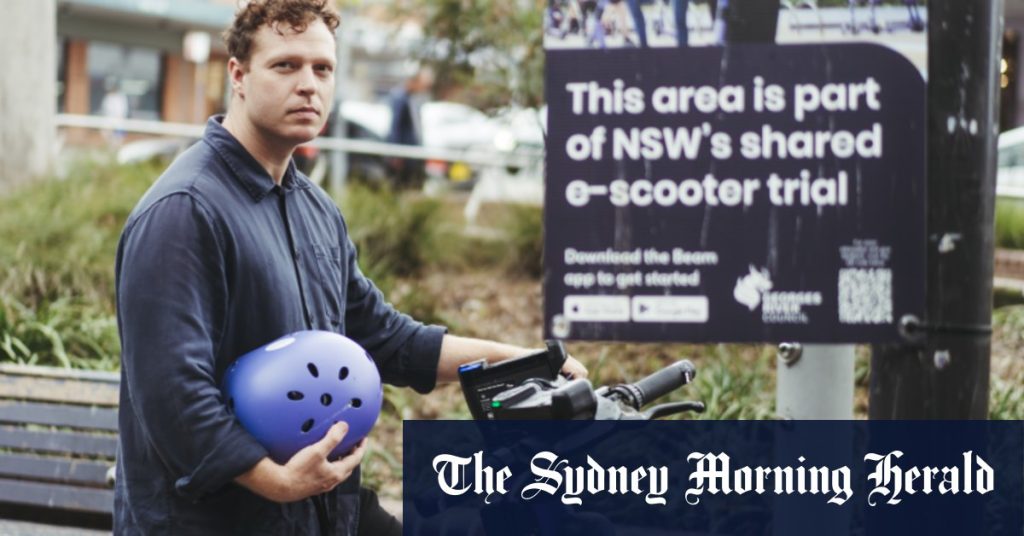Inner west passengers will soon have the option to participate in an e-scooter trial to help alleviate public transport disruptions caused by the T3 heavy rail line closure between Sydenham and Bankstown for a 12-month conversion to a metro line. The plan, likely to be endorsed by the Inner West Council, will focus on providing a link between Dulwich Hill, Marrickville, and Tempe stations. Initially proposed by Transport for NSW, the trial envisioned direct e-scooter access between Dulwich Hill, Marrickville, and Sydenham stations, as well as routes to Tempe along the Cooks River and north from Marrickville to Lewisham, Petersham, Stanmore, and Newtown stations. However, due to concerns raised by the council regarding safety, management, and enforcement in a larger area, a more confined corridor has been proposed.
The council’s preferred smaller corridor will restrict e-scooters to the Cooks River route from Dulwich Hill to Tempe and from Tempe to Marrickville. Scooters will not be able to connect to Sydenham or the T2 inner west line further north. Additionally, e-scooter parking will be geo-fenced to the three specified stations only, rather than along the routes in-between, to provide predictable and manageable start and finish points. E-scooters are already legal in many countries and in several Australian states, including Queensland, Tasmania, and the ACT. A trial has been ongoing in Melbourne since February 2022, covering specific municipalities.
Sydney’s first e-scooter trial commenced in January, focusing on a limited area within the Georges River Council region around Kogarah. The 60 Beam scooters are subject to speed limits of 20km/h on roads and 5km/h on paths, with 2023 rides recorded in the first month. Personal e-scooters are currently illegal on NSW roads and footpaths, except in the six sanctioned trial areas, with the other five being located outside of Sydney. The Inner West Council’s decision to move forward with an e-scooter trial is aimed at providing alternative transportation options for commuters during the T3 heavy rail line closure, offering a convenient and eco-friendly mode of travel in the designated corridor between Dulwich Hill, Marrickville, and Tempe.
Despite the potential benefits of e-scooters in bridging gaps in public transport networks and reducing traffic congestion, concerns raised by the council regarding safety, management, and enforcement have led to the proposed implementation of a more restricted corridor for the trial. By focusing on specific routes and designated stations, the council aims to address these issues and ensure a controlled and efficient trial experience for passengers. The success of existing e-scooter trials in other Australian cities and around the world demonstrates the growing popularity and acceptance of this mode of transport as a viable solution for urban mobility challenges. Inner west passengers are poised to benefit from the convenience and accessibility offered by e-scooters during the T3 heavy rail line closure, with the potential for expanded usage and integration into the public transport network in the future.


